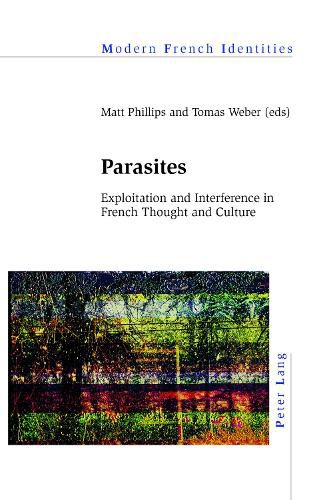Readings Newsletter
Become a Readings Member to make your shopping experience even easier.
Sign in or sign up for free!
You’re not far away from qualifying for FREE standard shipping within Australia
You’ve qualified for FREE standard shipping within Australia
The cart is loading…






The word parasite evokes nearness and feeding: the Greek parasitos is one who eats at the table of another . In biology, a parasitic organism is the beneficiary of an unequal relation with its host. The social parasite, too, is one recognized or misrecognized as the unproductive recipient of one-way exchange. In communications theory, meanwhile, static or interference ( parasite , in French) is the useless information which clouds the channel between sender and receiver.
In 1980, Michel Serres’s Le Parasite mobilized the concept of the parasite to figure noises, disruptions, destructions and breakdowns at the heart of communication systems, social structures and human relations. Drawing on Serres’s work, the chapters of this volume - organized around two conceptual poles, exploitation and interference - examine French literature (Villiers de l'Isle Adam, Proust, contemporary poetry), film (Nicolas Philibert, Claus Drexel), art (Sophie Calle, contemporary glitch art ) and philosophy (Descartes, Serres, Derrida, Deleuze and Guattari), alongside medieval hagiography, immunology, communications theory and linguistic anthropology. The volume thereby demonstrates the new and continued relevance of the figure of the parasite in thinking about transmission, attachment, use, abuse and dependency.
$9.00 standard shipping within Australia
FREE standard shipping within Australia for orders over $100.00
Express & International shipping calculated at checkout
The word parasite evokes nearness and feeding: the Greek parasitos is one who eats at the table of another . In biology, a parasitic organism is the beneficiary of an unequal relation with its host. The social parasite, too, is one recognized or misrecognized as the unproductive recipient of one-way exchange. In communications theory, meanwhile, static or interference ( parasite , in French) is the useless information which clouds the channel between sender and receiver.
In 1980, Michel Serres’s Le Parasite mobilized the concept of the parasite to figure noises, disruptions, destructions and breakdowns at the heart of communication systems, social structures and human relations. Drawing on Serres’s work, the chapters of this volume - organized around two conceptual poles, exploitation and interference - examine French literature (Villiers de l'Isle Adam, Proust, contemporary poetry), film (Nicolas Philibert, Claus Drexel), art (Sophie Calle, contemporary glitch art ) and philosophy (Descartes, Serres, Derrida, Deleuze and Guattari), alongside medieval hagiography, immunology, communications theory and linguistic anthropology. The volume thereby demonstrates the new and continued relevance of the figure of the parasite in thinking about transmission, attachment, use, abuse and dependency.